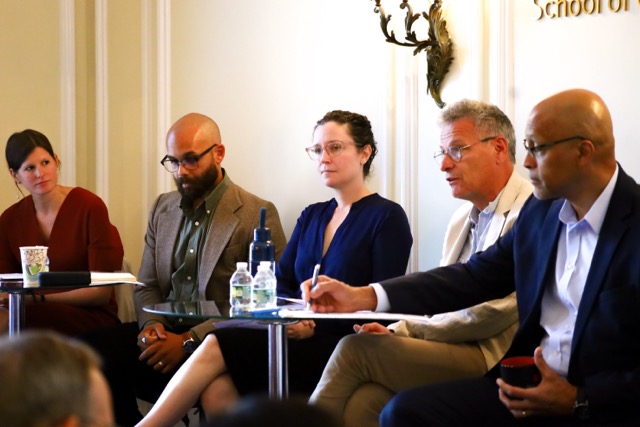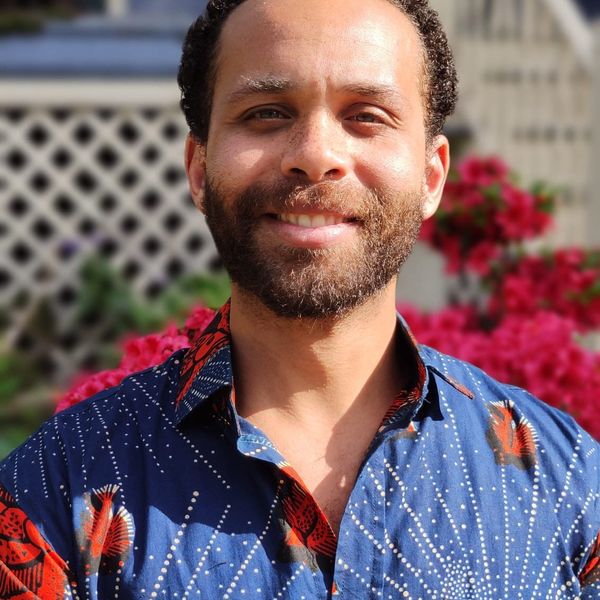

Zachary Mondesire
Assistant Professor of International Relations
Zachary Mondesire’s research examines how political and economic communities are imagined and organized beyond the nation-state. Trained as an anthropologist and now based in a global studies department, he explores the intersection of race, religion, and geopolitics in Africa and the Middle East, with particular attention to Pan-Africanism’s institutional legacy and the possibilities of Black Internationalism. He is especially drawn to forms of governance that attempt to fulfill the emancipatory promises of anti-colonial struggle—whether through national liberation, transnational solidarities, or universal ethical ideals like pluralism and the cosmopolitan ethic. Across his work, from South Sudan’s post-independence political imagination to the development model of the Aga Khan Development Network, he examines how alternative practices of belonging and cooperation emerge globally. At its core, his scholarship is guided by a conviction that another world is possible—and that grounded, institutional pathways can bring it into being.
Mondesire’s first project, The Last Black Republic (forthcoming with the University of Chicago Press), traces the paradoxes of South Sudan’s independence, situating it as both the culmination of decades of struggle and a reminder of decolonization’s limits. Drawing on ethnography in Khartoum, Juba, Nairobi, and Cairo, it foregrounds how South Sudanese intellectuals, artists, and activists negotiate belonging, race, and political identity after secession. Rather than framing independence as an uncomplicated liberation, the book highlights persistent displacement, reconfigured citizenship, and the frustrations of post-revolutionary governance. It juxtaposes South Sudan’s experience with global partitions—India/Pakistan, Israel/Palestine, Haiti/Dominican Republic—showing how secession reveals both the promises and failures of national independence. At its core, the book advances an anthropology of secession that asks what comes after the horizon of liberation.
His second project, The Cosmopolitan Ethic of Aga Khan Development Network, investigates the AKDN as a model of transnational development that links healthcare, education, cultural heritage, finance, tourism and hospitality, media, and infrastructural development and humanitarian action within a single institutional framework. The project asks whether the AKDN offers a viable alternative to dominant development paradigms that often reproduce or intensify the inequalities they aim to address. Building on pilot research in East Africa and Europe, Mondesire examines how the network institutionalizes care, solidarity, and pluralism as forms of ongoing governance rather than temporary responses to crisis. By adapting ethnographic methods to the scale of a global institution, the project highlights how the AKDN operationalizes the “cosmopolitan ethic” articulated by His Highness the Aga Khan—an ethic that affirms shared humanity while respecting difference. In tracing how these principles are enacted across diverse contexts, the project develops “the cosmopolitan ethic” as an analytic for understanding pluralism, development, and alternative forms of internationalism.
Mondesire’s expertise spans critical geopolitics, social movements in Africa and the Middle East, Black studies, Pan-Africanism, racial regimes, and comparative secessionist movements. His scholarship also reaches public audiences, with work published in venues such as Africa Is a Country. His classes explore global struggles for justice, examining how oppressed communities articulate grievances, pursue liberation, and confront the limits of existing political systems. Students engage theory, history, literature, and film to analyze how demands for justice emerge, are represented, and might be resolved across local and global contexts.

